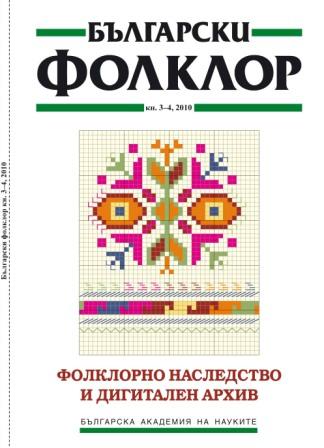Обредно слово и работа с архив
Ritual Word and Working with Archives
Author(s): Irina KolarskaSubject(s): Customs / Folklore
Published by: Институт за етнология и фолклористика с Етнографски музей при БАН
Summary/Abstract: In this work we present the analysis, functions and entry of the Christmas blessing within the matrix for description of a folklore text. The study shows that the function and meaning of the Christmas blessing is influenced by the polysemantic character of the Christmas ritual structure. The specifics of the ritual koleduvane imposes some limits on its participants. The ritual performers could be only unmarried men led necessarily by a married man i.e. by a person with a high status in the social hierarchy. Only he is allowed to bless. The woman in this ritual is the person who gives the gifts, because she is identified with the home, the earth, the farm – in their name (and her own) she promises fertility and endows with gifts. In structural respect the Christmas blessing is divided in several basic parts, differentiated by an initial and a final formula. The use of formulas in blessing allows for its stability and limits the chances for improvisation. The form and function of the verbal formula turn it into a significant part of the ritual, a means for realization of its concept. The Christmas blessing is interpreted as a meaningful part of folklore heritage, finding its place within the paradigm of the electronic archives. The archives aim at systematizing and classifying the rich archive materials. The study of folklore verbal forms shows that they are not separate but interrelated to other elements of folklore, respectively, the ritual. The relations between the ritual elements need to be clearly outlined in entry of a ritual into the matrix for description of archive materials. For this purpose the description should involve information about the ritual word, its belonging to a certain form – monologue (brief or long one) and dialogue; about the performer – age, gender, social status, ritual moment, when it is performed. Such structuring of archive materials allows for constructing a whole information system which works for the scholar and guarantees quality selection of folklore texts.
Journal: Български фолклор
- Issue Year: XXXVI/2010
- Issue No: 3-4
- Page Range: 101-106
- Page Count: 6
- Language: Bulgarian
- Content File-PDF

